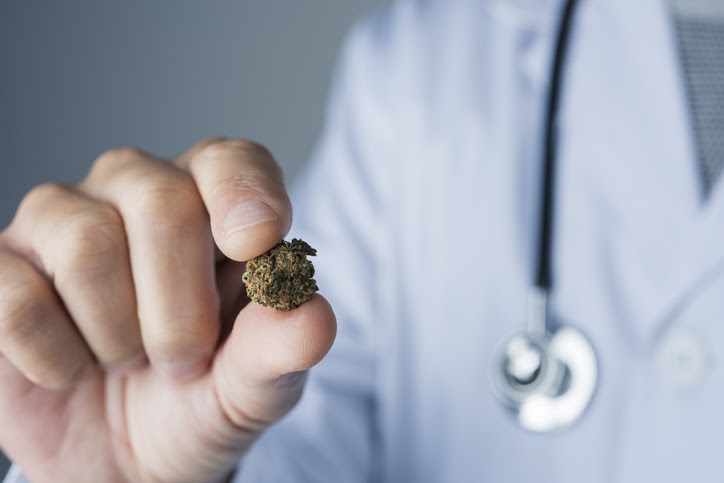
Muscle spasms, sometimes referred to as muscle cramps, are frustratingly common. They happen to everyone, and the reasons aren’t always clearly understood. Generally, muscle spasms aren’t serious. A cramped leg, often called a charley horse, can usually be remedied by rubbing it or walking around. That’s because more benign muscle spasms are usually due to minor dehydration, lack of muscle use, or a misfired nerve.
However, there are instances where muscle spasms are more harmful. In these cases, the spasms can be caused by a serious underlying medical condition. Individuals who experience these types of recurring muscle spasms may ask, “Does weed relax muscles to reduce spasms?”
While further research is needed, early studies have shown cannabis may be effective when added to a treatment routine for muscle spasms.
What Causes Muscle Spasms?
Muscle spasms have numerous causes most of which are relatively harmless. They are often the result of a muscle being underused and cramping up. Not all causes are so simple, though. Repeated and severe spasms can be an indicator of a potentially serious medical condition.
Possible causes of muscle spasms may include:
- Dehydration
- Inactivity
- Overuse of a muscle
- Stress
- Depleted electrolytes
- Pinched or compressed nerves
- Poor circulation
- Multiple sclerosis (MS)
- Thyroid disease
- Cirrhosis of the liver
- Kidney disease
- ALS
- Nerve damage
- Isaacs’ syndrome
Muscle Spasms Signs & Symptoms
Muscle spasms are symptoms in their own right, rather than a condition itself. Anyone experiencing frequent muscle spasms or severe spasms that persist even when the muscle is massaged, stretched, and well-hydrated should seek medical attention.
Muscle spasms often present as twitching or tingling in a muscle. They can also show up in the form of a cramp that locks a muscle in place. Muscle spasms can also manifest as a cram, numbness, muscle weakness, and – in more severe instances – poor coordination and slow movement.
For a more complete list, muscle spasms may appear as any of the following:
- Involuntary muscle twitching
- A tingling or “pins and needles” sensation
- Cramping
- Numbness
- Muscle weakness
- Poor coordination
- Slower movement
- Double vision
- Paralysis
Can Cannabis Help Alleviate Symptoms of Muscle Spasms?

While there have been multiple studies conducted on the effectiveness of cannabis at treating muscle spasms, the majority of them focus on treating the muscle spasms caused by multiple sclerosis (MS).
It is believed that cannabis helps with spasms by binding to receptors in the area of the brain responsible for muscle movement.1 That particular region is known to have abundant endocannabinoid CB1 receptors, which THC readily binds to. The majority of participants who used cannabis for MS reported relief from muscle spasms, but researchers weren’t able to physically measure a decrease in spasms.
A retrospective study on the use of cannabis for MS found similar results. The majority of participants reported relief of both pain and muscle spasms, but the researchers weren’t able to measure a reduction in muscle spasticity.
A study out of the UK showed 61% of participants reporting relief from cannabis, compared to 46% with placebo. And a study focusing on MS and spinal cord injuries found that more than half of patients who suffered from spinal cord injuries reported relief from muscle spasms with cannabis use.
The results suggest that medical cannabis patients are getting real relief, even if researchers don’t entirely understand why just yet.
Can CBD Be Used for Muscle Spasms?
When a pharmaceutical containing both THC and CBD was tested for its ability to treat patients with multiple sclerosis, participants reported a significant reduction in pain, muscle spasms, and sleep disturbances brought on by MS.
Research on cannabis and muscle spasms is limited, and understanding is even more finite. Still, the majority of patients have consistently self-reported relief from muscle spasms with medical cannabis.
Legality and Doctor’s Recommendation
To determine if your state considers muscle spasms to be a qualifying condition for medical marijuana, check out our Laws & Regulations section for the medical cannabis rules for your state.
If you find that your state recognizes muscle spasms as a qualifying medical condition, you can seek a doctor’s recommendation to register for your state’s medical marijuana program.
How NuggMD Can Help

NuggMD is the nation's leading medical marijuana technology platform, serving patients in 22 states and growing. We’ve connected over 1,000,000 patients with their new medical marijuana doctors face-to-face via our state-of-the-art telemedicine platform.
We believe that every human being has the right to explore the benefits of medical cannabis and are fully committed to helping each patient explore all of their options in their journey to wellness. For further information on whether you qualify for medical cannabis, select your state.
Sources:
Mack, Alison, and Janet Joy. MARIJUANA and MUSCLE SPASTICITY. Www.ncbi.nlm.nih.gov, National Academies Press (US), 2000, www.ncbi.nlm.nih.gov/books/NBK224382/.
The information in this article and any included images or charts are for educational purposes only. This information is neither a substitute for, nor does it replace, professional legal advice or medical advice, diagnosis, or treatment. If you have any concerns or questions about laws, regulations, or your health, you should always consult with an attorney, physician or other licensed professional.

